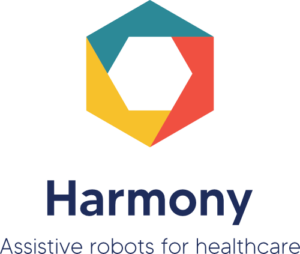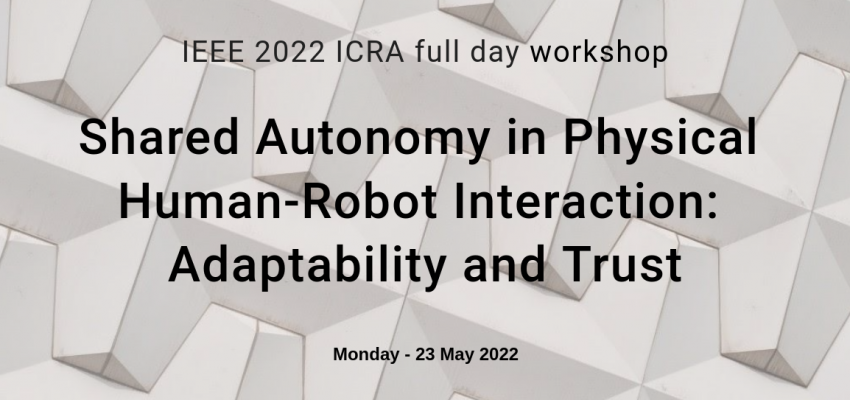Shared autonomy is a control paradigm that allows a human to interact with a (partially) autonomous robot to achieve a common goal or jointly realize complex tasks. In this scenario, how to opportunely mediate autonomy between participating actors is a difficult question still to be answered. Sometimes it is desirable that the autonomy level is intelligently adapted in function of the changes in the surrounding environment and/or based on the recognition of human actions/intentions. In this way, the robot may be able to assist the human in fulfilling the task, dynamically adjusting its autonomy over time, thus providing contextual or personalized assistance. However, these desirable autonomy adaptation features raise new challenges for the acceptability of robots since people may not feel in total control of the situation. Safety, legibility, and intuitiveness must be guaranteed to increase human trust in the robotic system in view of its adapting behavior.
This workshop brings together renowned scientists from the machine learning, robot control, and human factors communities devoted to research on shared autonomy. The main goal is to foster the discussion about: (i) how to opportunely mediate the autonomy between robots and humans; (ii) how to leverage information from the human and environmental features to trigger autonomy adaptation; (iii) how to guarantee trust when designing adaptable shared autonomy robot. The objective is to gather different perspectives about the state-of-art in the research field in pursuit of coordinated solutions for building the next generation of shared autonomy robotic systems.
Important dates
Submission deadline: May 5th, 2022
Notification of acceptance: May 12th, 2022
Workshop date: May 23, 2022
To find out more information check out the workshop website: https://sites.google.com/view/saphri-icra2022.


